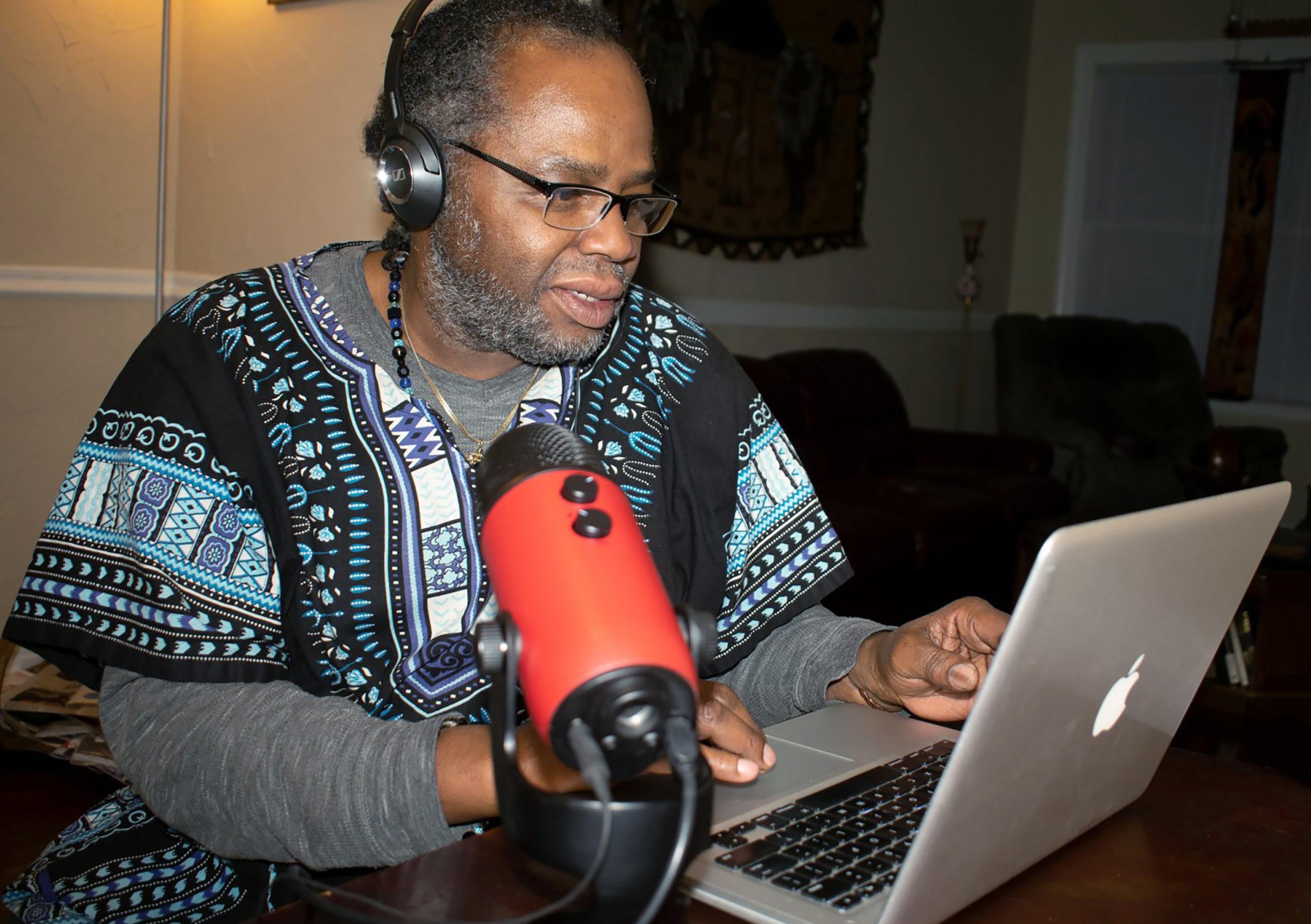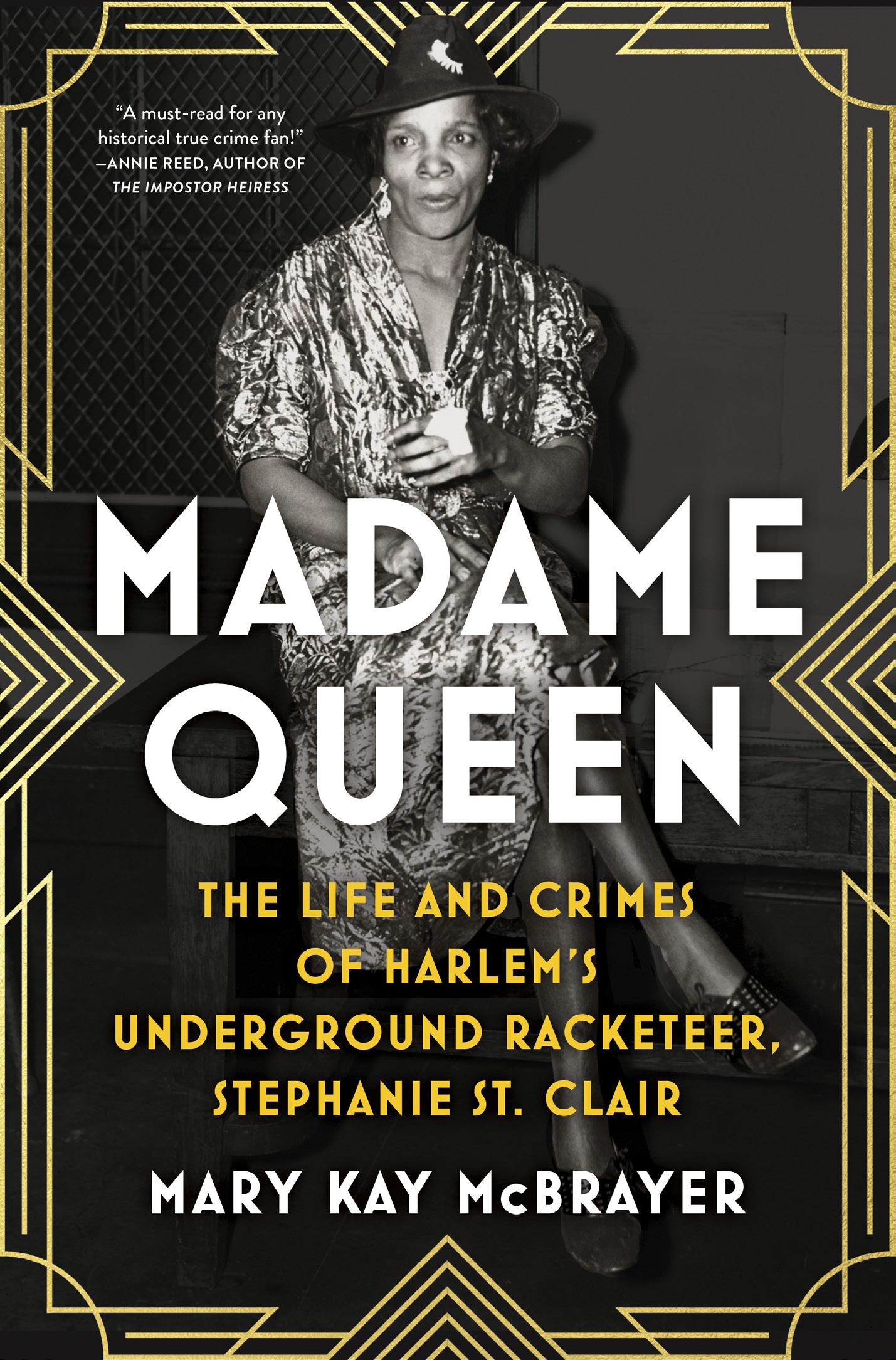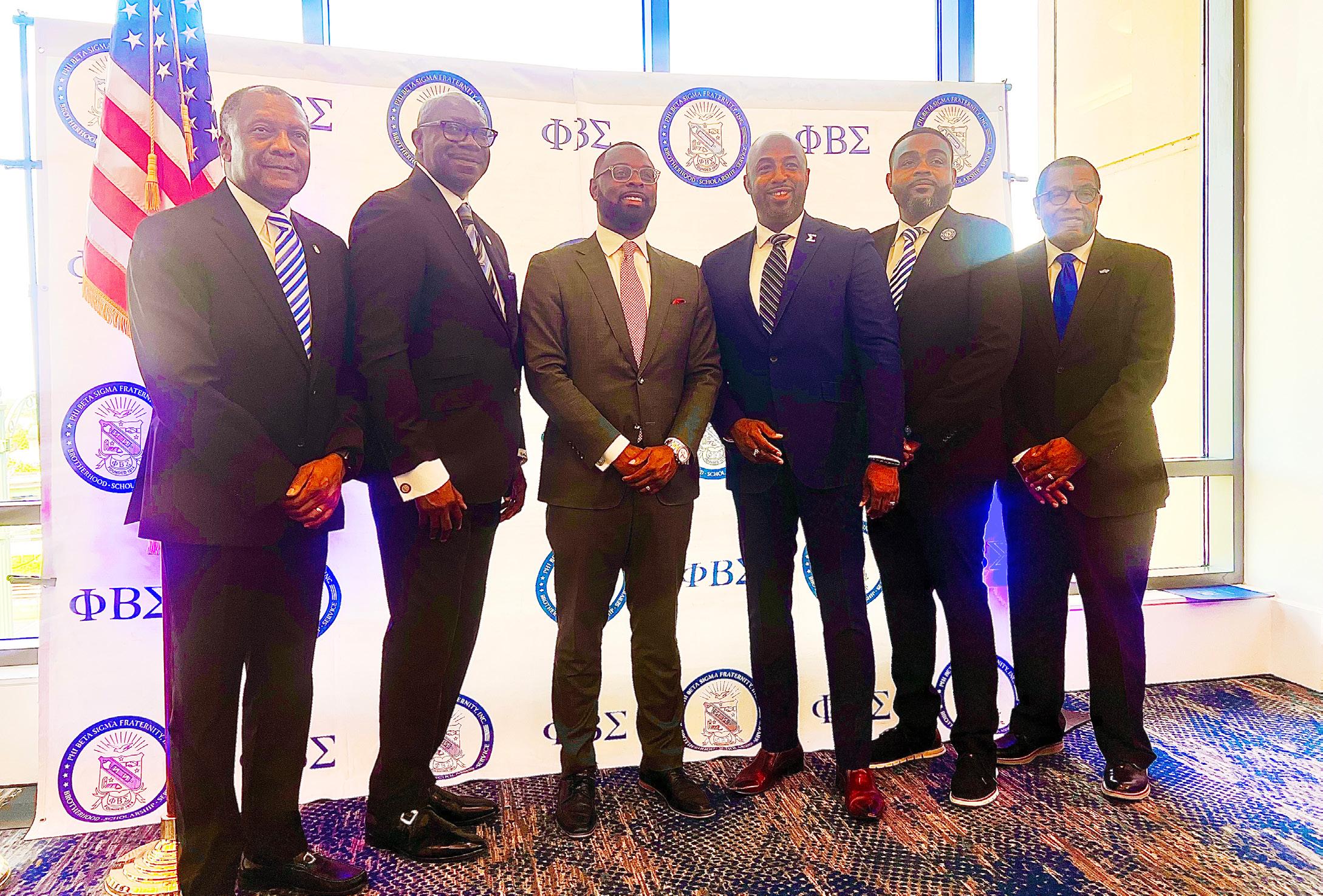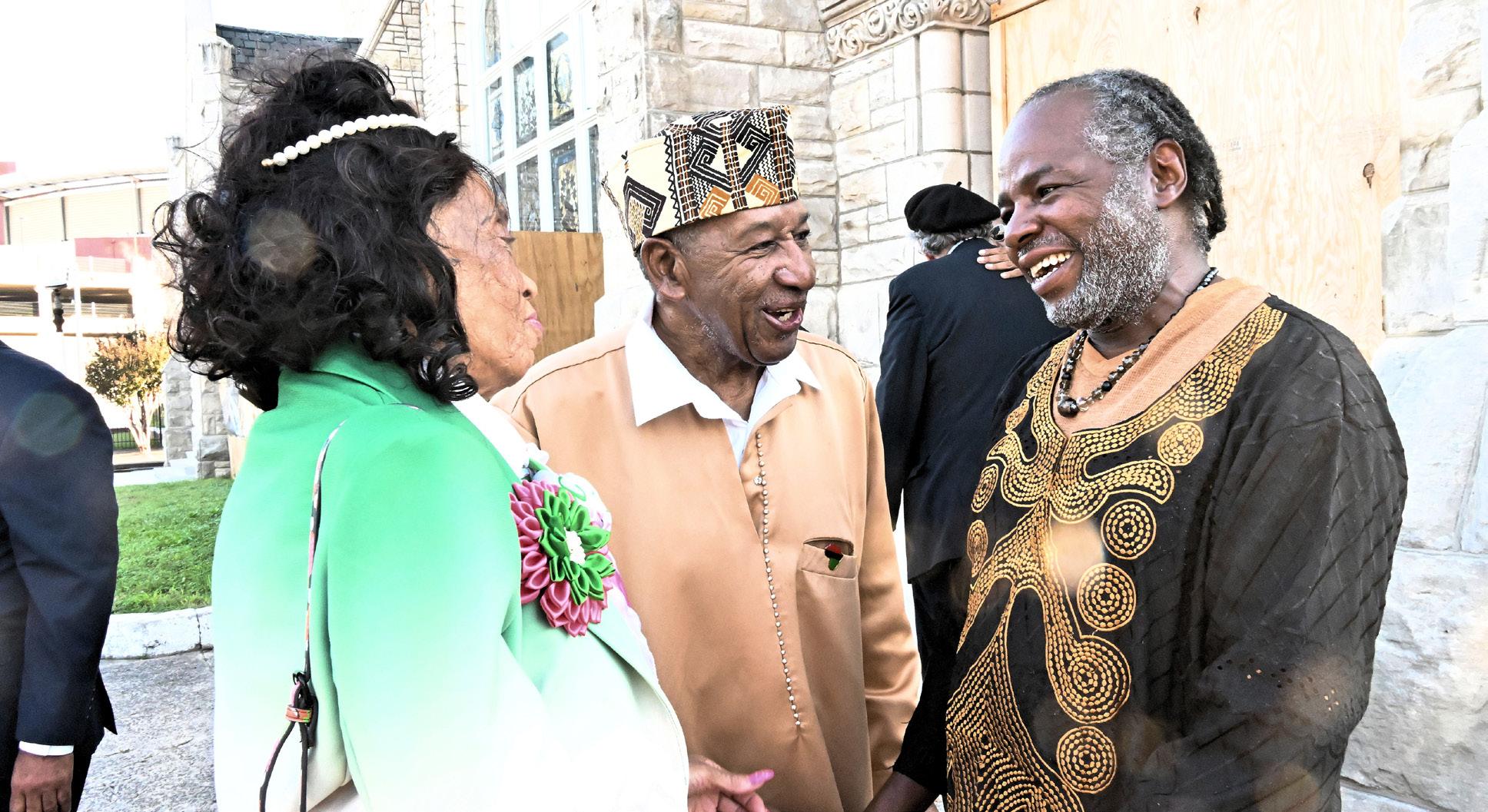


TRI-STATE DEFENDER








By Lee Eric Smith Special to The Tri-State Defender
The Shelby County Health Department has approved a key air pollution control permit for xAI Operations LLC, clearing the way for Elon Musk’s artificial intelligence company to move forward with permanent infrastructure at its South Memphis supercomputer facility.
In a joint statement from the Southern Environmental Law Center (SELC), community groups expressed frustration following the decision. KeShaun Pearson, lead organizer with Memphis Community Against Pollution, said the decision was a blow to public trust.
POSTMASTER: Send address changes to The Tri-State Defender, 1509 Madison Ave., Memphis, TN, 38104.
GENERAL INFORMATION: Inquiries may be submitted in writing or by calling (901) 523-1818 or by email. TELEPHONE: (901) 523-1818.
The Tri-State Defender (USPS 780-220) is published weekly. The Tri-State Defender 1509 Madison Ave. Memphis, TN, 38104. Second-class postage paid in Memphis, TN.
The permit, issued July 2, authorizes xAI to construct and operate 15 natural gas-fired combustion turbines. According to the Health Department, the turbines will include Selective Catalytic Reduction (SCR) systems designed to significantly limit emissions of nitrogen oxides and other pollutants.
The agency stated that xAI met all applicable federal, state and local environmental regulations under the Clean Air Act, including air dispersion modeling, emissions thresholds and pollution control requirements. The approval follows months of intense public debate, protest and formal opposition from organizations including the NAACP and Memphis Community Against Pollution.
In a public statement accompanying the decision, the Health Department said it had “carefully reviewed all public comments” received during the hearing and comment period.
The approval comes despite an official May 29 letter from the NAACP demanding an emergency shutdown of xAI’s operations. That letter accused xAI of illegally operating unpermitted turbines and criticized the Health Department and Memphis Light, Gas and Water (MLGW) for failing to enforce transparency and air quality protections. MLGW denied those claims in a written response, insisting the utility had no authority over turbine permitting and emphasizing that it must provide service to any customer in its territory under federal law.
“Our local leaders are entrusted with protecting us from corporations violating our right to clean air, but we are witnessing their failure to do so,” Pearson said. “We are devastated, yet we remain determined to the mission of justice for our families in South Memphis, who are overburdened with air pollution.”
Amanda Garcia, senior attorney with SELC, called the decision disappointing and said the organization is evaluating
its options.
“The decision to give xAI an air permit for its polluting gas turbines flies in the face of the hundreds of Memphians who spoke out against the company’s permit request,” Garcia said in the statement.
The turbines approved under the permit are projected to emit nitrogen oxide at just two parts per million — far below the 25 ppm federal limit. According to xAI and its engineering consultants, the facility will also rely on a closed-loop cooling system and will not draw water from the Memphis Sand Aquifer. Instead, an $80 million wastewater recycling facility is planned to support the water needs of xAI, TVA and Nucor Steel.



By Stacy M. Brown BlackPressUSA
Dr. Benjamin Chavis Jr., president and CEO of the National Newspaper Publishers Association (NNPA), is calling for a major shift in how Black America and its allies frame the ongoing pursuit of equality. In a new push led by the Black Press, Chavis announced that “merit, advancement and opportunity” — or MAO — will replace diversity, equity and inclusion (DEI) as the movement’s guiding language.
“The Black Press is proudly moving forward with new wording and nomenclature that more accurately describes our goals and objectives with respect to corporate America and governmental agencies,” Chavis said. “Merit, advancement and opportunity are taking the place of DE&I as a matter of self-deter-
mination by Black America. We cannot permit people who do not have our interest to define our reality.”
Chavis said the DEI framework, once embraced as a path to equity, has been manipulated and weaponized by farright forces to “undermine the progress of communities of color in America.”
In both public statements and a recent op-ed, Chavis outlined the logic behind replacing DEI with MAO.
“Words matter,” he wrote, recalling the backlash to affirmative action and critical race theory — terms that, like DEI, have been twisted into targets by conservative politicians and media.
“In America today, it is time to move forward.”
Rooted in history and collective family wisdom, the term MAO emerged from an intergenerational discussion within the Chavis family in Oxford, North Carolina — home to the family
for more than 200 years. Recalling the evolution of the freedom movement, Chavis asserted that Black Americans have always “worked hard to attain excellence and respect,” and that merit has been an integral part of their identity.
“MAO is a transcended and elevated way of describing the current goal of our struggle for freedom, justice and equality,” Chavis explained. “The Black Press has always had a history and legacy of redefinition and re-articulation of the interest of Black America and of the interest of all those who cry out for freedom and justice.”
The components of MAO are straightforward. Merit, Chavis said, is about recognizing and rewarding ability and achievement. Advancement ties progress to measurable contributions, and opportunity ensures that everyone has access to the resources necessary
to succeed without bias tied to race, gender or identity.
“MAO promotes a fair, objective and efficient system where individuals succeed based on their merits,” he wrote in the op-ed. “MAO is aspirational without limitations to take advantage of opportunities to advance individual careers and greater societal good for all.”
As some corporate executives backpedal on DEI, Chavis said none have proposed viable alternatives that both honor merit and ensure access. MAO, he argued, bridges that gap and offers a new framework for decision-makers in Congress, statehouses and boardrooms.
“We look forward to continuing the national dialogue and refinement of the conceptual framework of merit, advancement and opportunity,” Chavis said. “It is an urgent time to move our democracy forward and to reclaim the oneness of humanity.”



By Terri Schlichenmeyer
Special to The Tri-State Defender
Keep your eyes on the prize. If you want something enough, you’ll never, ever lose sight of that goal. You’ll do what it takes to achieve it, letting it linger in your dreams at night and dictate where you live, who you live with, where you work and what you do. Never look away. Keep your eyes on the prize. As you’ll see in “Madame Queen” by Mary Kay McBrayer, it might be worth it.
It’s likely that young Stephanie St. Clair learned to lie from her mother.
McBrayer says Ancelin knew her daughter was “shrewd.” She probably figured that sending Stephanie alone on a ship from Guadeloupe, French West Indies, to New York City was a chance for the girl to “spin straw into gold,” never mind that Stephanie was just 13 years old. Still, it soon became obvious that Ancelin was correct: Stephanie took the ruse further and told a ship’s worker that she was 23.
The year was 1911, and Stephanie arrived in New York to a home for young female immigrants. McBrayer doesn’t believe that Stephanie made many friends there, but she kept her eyes open to opportunity, discovering at the White Rose Home for Colored Working Girls that she was good with numbers. There, she was also taught to sew, clean, save money, and how to comport herself as a lady.
Just beyond the doors of the home, she learned to shoot dice.
She was with a man who was courting her when she learned to play the numbers.
Though it’s a fact that she married George Gachette not long afterward, Stephanie never directly mentioned it anywhere, nor did she mention the child they had or the day she rented a room in Harlem and abruptly left them both. She took a job at a dress factory. And later, she moonlighted at a bank and began to plan.
From then on, says McBrayer, “She was investing in her own future…”
She was also building her own crime empire.
In her introduction, McBrayer explains how this book came to be: She read something about Stephanie St. Clair and went in search of more, but information was scarce. She admits that she inferred much and made up a lot to craft this story. She calls it “creative nonfiction,” and in “Madame Queen,” it works.
Such conjecture, in fact, actually works better because McBrayer serves as a kind of narrator in Stephanie’s story, filling in the many, many blanks with plausible conversations and likely facts that she backs up with sound reasoning. Indeed, the imaginary oozes between the truth to make this feel like a novel, but with occasional reminders that reality is somewhere, inside, outside or nearby. It’s a tale told with fine sleuthing, dogged journalism, a well-described backdrop and a touch of obvious admiration for its subject.
Readers who love biographies and can accept some speculation will devour this book, as will fans of historical novels, 1920s history and “The Sopranos.” Look for “Madame Queen.” It’s a good surprise for the eyes.”

by Mary Kay McBrayer
c.2025, Park Row Books
$30.00
256 pages
By Dalisia Ballinger The Tri-State Defender
Phi Beta Sigma Fraternity, Inc. has announced that Memphis will serve as the host city for its 2029 conclave, an international gathering expected to draw thousands of members.
City leaders and community partners met with fraternity leaders Tuesday at the Renasant Convention Center to deliver the news.
“We are very excited,” said Chris Rey, international president of Phi Beta Sigma. “We’re excited because Memphis is the city where the concept of Phi Beta Sigma was conceived. We have three principal founders, and the principal founder, A. Langston Taylor, was a Memphis resident. It was here that he thought about and conceived this brotherhood that has expanded across the globe for over 111 years.”
Founded in 1914 at Howard University in Washington, DC, Phi Beta Sigma has grown into a global organization committed to brotherhood, scholarship and service. The 2029 conclave will commemorate its 115th anniversary.
Mayor Paul Young was on hand to welcome the organization, emphasizing the cultural and civic importance of the event.
“I think it’s important that a city like Memphis, that has such cultural distinction (of being) the largest majority-black city in the nation, has a strong presence of the Divine Nine,” Young said, referring to the nine historically Black Greek-letter fraternities and sororities.
“It’s going to be great to see the city all decked out in blue and white and all the brothers of Phi Beta Sigma in Mem-


phis enjoying their conclave. They’ll also be doing community service and showing their success to our young people.”
Malvin Gipson, executive vice president of Memphis Tourism, highlighted the tangible benefits the city stands to gain: “It’s a big event because we’re looking to have thousands of people come to Memphis, which means millions of dollars in economic impact.
Events like this are why we built a convention center and did the expansion, so we can accommodate the thousands of people coming in.”
Local fraternity members who worked to help secure the bid were equally energized.
“I’m personally very excited to have the conclave come to Memphis in 2029,” said Calvin Anderson, a Phi Beta Sigma member and president of
The Tri-State Defender. “It took a lot of work to win the endorsement of the fraternity to bring the convention to Memphis. We can’t wait to shine a positive national spotlight on our people and our culture.”
The event also received support from local members of Zeta Phi Beta Sorority Inc., Phi Beta Sigma’s sister organization, who were present to celebrate the announcement.

The Tri-State Defender will host its third TSD in the Community Forum, which will focus on education and education policy. The forum is scheduled for Wednesday, July 16, at 6 p.m. at First Baptist Church Broad, 2835 Broad Avenue, Memphis.
The forum will bring together parents, educators, community leaders and policymakers for a conversation about the challenges and opportunities facing local schools. Attendees will learn how they can play a role in strengthening the education landscape for children across the Mid-South.
“Access to quality and equitable education has been a challenge for African Americans since we were brought to this country and remains so today,” said Stephanie R. Jones, The Tri-State Defender editor. “Education is the bedrock to the future of our city, and we want to help engage everyone from parents to policymakers to be part of the conversation as we seek pathways to move our students forward.”
The panel will include:
• Tennessee Sen. Raumesh Akbari, Esq.
• Dr. Christopher B. Davis, president, LeMoyne-Owen College
• Dr. Tracy D. Hall, president, Southwest Tennessee Community College
• Dr. Nickalous Manning, executive director, Journey Community Schools
• Dr. Roderick Richmond, interim superintendent, Memphis-Shelby County Schools, will send a representative.
The discussion will be led by Lori Spicer Robertson, St. Jude Children’s Research Hospital vice president and chief diversity, equity and inclusion officer and founder and CEO of Wundher, a digital media and membership community designed to reconnect women and mothers to their joy.
Upcoming TSD in the Community Forums include:
• Public Safety in August
• Government and Politics in October
• Entrepreneurship in November
TSD in the Community is sponsored by The TriState Defender, W&T Contracting Corp. and Xfinity.
The forum is free and open to the public, and registration is required through Eventbrite: www.tristatedefender.com/community


By Lee Eric Smith Special to the Tri-State Defender
Karanja A. Ajanaku, former executive editor and associate publisher of The Tri-State Defender, died Tuesday, July 8, after an extended battle with liver cancer. He was 70.
Born Leroy Williams Jr. in Natchitoches, Louisiana, Ajanaku was raised in Kansas City, where his family moved when he was five years old. After graduating from high school and studying at the University of Missouri-Columbia, he boarded a bus headed east to Memphis.
He began his career in 1977 at The Commercial Appeal, part of a groundbreaking trio of Black journalists in Memphis that included Otis Sanford Jr. and Jerome Wright. Together the trio brought African American sensibilities and insights to Memphis news coverage. Sanford reflected on those early days of “The Three Amigos” as they were known.
“I don’t think [The Commercial Appeal editors] were thinking deliberately, like, ‘Let’s make sure we put Black people on these three important beats,’” Sanford said. “No, it just happened. It was happenstance.”
What wasn’t happenstance was Ajanaku’s approach to covering Memphis, Sanford said. He praised his friend’s determination to tell a different type of story about being African American in Memphis.
“Karanja broke ground at The Commercial Appeal — how he wrote about, explained and identified issues around African Americans in Memphis in a way that had never been done,” Sanford said.
In 1986, influenced by philosopher Nkosi Ajanaku, he legally changed his name to Karanja Aidoo Ajanaku — symbolic of his evolving African and American identity. He wrote about it in 2010 on his personal blog.
“Karanja means ‘guide,’” he wrote. “My middle name is ‘Aidoo.’ It means ‘one who puts things in place; sets things in order.’ Ajanaku (as redefined here in Memphis) means ‘free and wealthy people.’
“So I am the guide who sets things in order for free and wealthy people,” he continued.

Ajanaku left The Commercial Appeal in the early 2000s. “He left because … I don’t think he saw a meaningful role for himself going forward,” Sanford said. “And he decided to go and do something else.
“That something else eventually wound up being editor and associate publisher of The Tri-State Defender.”
In 2007, “Dr. K.” joined the staff at The Tri-State Defender, where he not only wrote and edited much of the content, but willingly trained and developed talent — as long as they were willing to show up and do the work.
“He brought a wealth of experience to the paper,”
said Wiley Henry, who worked with Ajanaku for more than a decade. “He had a deep knowledge of editing stories and creating a narrative. I learned quite a bit from him — even after years of writing — about being a storyteller.”
“He was also teacher. He helped train young journalists,” Henry said. “Not just trained them, but showed them why he edited the story the way he did, how to clarify the message.”
LiAudwin Seaberry Jr. was among those young journalists. Seaberry first reached out about writing for the TSD in 2020, while studying journalism at the University of Memphis.



“He took a chance on me and believed in me,” said Seaberry, 25, who will soon start a new job at a newspaper in Missouri. “He was tough, yet firm — and firm and yet fair. He didn’t let me settle for anything. Dr. K demanded excellence, but he brought it to the table himself every day.
“I was okay with being good, but he said, ‘Why not
be great?’”
And it wasn’t just young journalists, either. Warren Roseborough started working with Ajanaku as a photographer when he arrived in 2007.
“I could take pictures — but Doc? He taught me how to be a photojournalist,” Roseborough said, holding back emotion. “He was brash, but that’s okay. It’s
because he was trying to make you better.”
For more than 10 years now, Roseborough has been TSD’s go-to sports photographer, a lane for which he gives Ajanaku credit. Ajanaku, who was also an avid photographer, recalled times when the two patrolled the sidelines at football games, and he would ask Roseborough for tips.
“Doc put his reins around me, and I became a pretty good damn photographer — a damn pretty good journalist,” Roseborough said. “That man was something else. God, he’s gonna be missed.”
Under his leadership, the paper upheld its historic mission of delivering “verified information that people can use to be able to make decisions about empowerment” and amplifying African American voices in a majority-Black city.
“Memphis is a majority African American city,” Ajanaku told Memphis magazine in 2018. “We are sure that if we provide the community with what it needs today, that they will respond relative to readership and support.
“If you’re going to live in a democratic republic, you’re going to live where the individual has to be informed, and if he doesn’t have the tools to take in the information and make informed decisions, you’ve got a problem,” he said.
Whether he was Leroy Williams or Karanja Ajanaku, that curiosity, character and moral clarity never changed, said Ron Williams, his younger brother.
“He was always a seeker,” he said. “Even before he changed his name, he was searching for something deeper — something that would give his life and his work a greater sense of purpose. And once he found that, once he understood the power of words and history and truth, he never let go of it.”
He described Ajanaku as both “relentless and reflective,” someone who didn’t just chase stories, but also wrestled with their meaning. “He saw journalism as more than a job — it was a calling. He believed our people deserved the truth, told with dignity and context.”
Even in his final days, he said, Ajanaku remained deeply engaged with ideas and people.
“He was tired, yes. But his mind was always moving — always thinking about the community, about young people, about what still needed to be said. That was Karanja. He never stopped trying to build something bigger than himself.”
Ajanaku is survived by his twin children, daughter Jamila Ajanaku of Phoenix, Arizona, and son Karanja Ajanaku Jr. of Nashville; a sister, Jacqueline Broadus of Reno, Nevada; two brothers, Randy Williams of Kansas City, Missouri, and Ronald Williams of Leavenworth, Kansas; and six grandchildren.
Funeral arrangements are pending, Williams said.

Cequita Monique’s latest venture nods to the spirit of the past while curating a bold new chapter
By Judith Black Moore The Tri-State Defender
Before Memphis had its first Starbucks...
Before downtown had a recognized arts scene...
Before the Green Room at Crosstown Concourse became a go-to for live music...
There was Precious Cargo.
If you were “grown” in Memphis between 1996 and 2008, you knew exactly where to go when the week called for a good vibe, thoughtful conversation and a soothing cup of something mellow. You headed to the Pinch District’s Precious Cargo, a coffeehouse infused with live jazz and soulful energy.
For regulars, it was more than a coffee lounge. It was Memphis in a mug, a place where you could run into an old friend or meet someone who felt like one by night’s end.
Though its doors closed 17 years ago, and the building was recently demolished, the spirit of Precious Cargo is alive again, this time at the Center for Southern Folklore. At the core of it all is powerhouse vocalist Cequita Monique, Precious Cargo’s former owner, who regularly performs on stage, often backed by the Culture House Band.
“Back when I opened Precious Cargo, I wanted a place where I could perform without waiting to be booked,” Monique said. “But I was so busy cooking, I didn’t have time to sing. People came for the music, but they wanted to eat, too. Now, I get to do what I love — sing.”
First Sunday Jazz Jam Pop-Up is where Monique not only takes the mic but also brings other talent into the spotlight. The pop-up is a monthly

series featuring live jazz, food, drinks and a celebration of Memphis culture.
But Monique is clear: This isn’t a revival of Precious Cargo but something entirely new. It’s a concept shaped by her international experience, rooted in Memphis’ musical traditions and built to uplift local and regional artists.
“It’s an energy, a vibe, something we’re creating in response to what Memphis needs right now,” she said.
“Memphis has talent that’s second to none around the world. It always has. We need to recognize and support
Memphis talent, appreciate our rich cultural history, live it, and invite others into it like other cities do.”
She sees the series as a direct response to the city’s struggle to fully appreciate its creative excellence. For the artists featured, it’s an opportunity to shine without needing to leave home.
“There’s a history of Memphis musicians performing around the world but struggling to get booked here at home,” Monique said. “We need to change that narrative and embrace our own talent.”
Monique’s production company,
Precious Cargo Exchange, produces the First Sunday Jazz Jam and other cultural events. She says the goal is to channel a vibe reminiscent of “cabaret meets speakeasy,” evoking the energy of a classic smoky Blue Light Lounge, minus the actual smoke.
The experience goes beyond music. Inside the Center for Southern Folklore, guests encounter what Monique calls a “living art experience” that blends performance, local art, cultural memorabilia and curated vendors.
For Monique, it’s also a platform to

1509 Madison Ave. Memphis, TN 38104
PH (901) 523-1818
HOURS: Mon.-Fri. 9 a.m. - 5 p.m.
DEADLINES:
Display ads Friday 5 p.m. Classifieds ads Monday 5 p.m.
STANDARD RATES: $8.00 per line for 1 column ad.
Rates are non-commissionable and are quoted at the net rate. No refund for early cancellation. For additional information contact Sales Dept. at (901) 746-5201 or email: advertising@tsdmemphis.com.
GENERAL INFORMATION:
The Tri-State Defender reserves the right to edit all copy or to reject or cancel any ad at any time. Copy change during ordered schedule constitutes new ad & new changes. Deadlines for cancellation are identical to placement deadlines. Rates subject to change.
LEGAL NOTICE TO FURNISHERS OF LABOR AND MATERIALS TO VIKTORHALL, LLC. FOR THE WOLF RIV.ER GREENWAY PHASE l0a PROJECT
Notice is hereby given that SHELBY COUNTY is preparing to make settlement with VIKTORHALL CONSTRUCTION, LLC. for necessary and related work for the rehabilitation and/or construction of WOLF RIVER GREENWAY PHASE toa PROJECT
All persons holding claims against the Contractor VlKTORHALL CONSTRUCTION, LLC. or their agents for materials or labor entering into the construction of this project must file itemized notice of such claim (two copies) with the original copy sworn to before a Notary Public. This notice to be received at the office of James Gloster Administrator of Purchasing, 5th Floor, 160 North Main, Memphis, Tennessee 38103, on or before July 3, 2025 in order to obtain the advantages afforded to claimants by legal statute.
Respectfully submitted, James Gloster Administrator of Purchasing Shelby County Government
educate. She believes the city overlooks many of its musical pioneers — artists like Alberta Hunter, a Memphis native born in 1895 who wrote Bessie Smith’s breakout hit Downhearted Blues, and W.C. Handy, whose legacy helped define the sound of the South.
“The stories of great artists like Alberta Hunter get left out of the conversation when we talk about Memphis,” Monique said. “We need to stop selling the crime when we talk about Memphis. We need to do a better job of selling the history and the art culture unique to this city. New Orleans does it. Atlanta does it. We’ve got to educate people about what’s here and be proud to offer it.”
Monique hopes the jazz jam becomes a monthly ritual for Memphians. Tourists are welcome, she says, but like Precious Cargo once did, she wants First Sundays to feel like home — familiar, welcoming and inclusive.
“Jazz is sophisticated, but it’s also home for Memphis,” she said. “That’s why I hope we can overcome the social cliques. The cliques stifle the expansion of art in the city. When it comes to jazz,
everybody belongs. I just want people to come, enjoy good music and feel at home.”
Sustaining this kind of entertainment, she adds, depends on changing one particular Memphis habit. “We’ve got to break the habit of being a last-minute ticket-buying city,” Monique said. “Getting tickets in advance shows love to the artists. It helps us plan, and it keeps this kind of entertainment alive. Artists should be preparing to perform, not worrying if there’s going to be an audience.”
For those who remember Precious Cargo, Monique says First Sunday Jazz Pop-Up is its next evolution. For newcomers, it’s a fresh cultural touchstone in a city that birthed some of the world’s greatest music.
Every First Sunday Center for Southern Folklore
119 S. Main St.
Time: 2–5 p.m.
Tickets: $25 in advance | $30 at the door
CashApp: $PCEProductions
Eventbrite: 1st Sunday Jazz Jam PopUp Series 2025


By Dalisia Ballinger The Tri-State Defender
For many families, braid day is a ritual — part bonding time, part battle. For Jalona Falkner and her 10-year-old daughter Addie, it was both.
Like so many mothers, Falkner knew the struggle: dry hair, itchy scalps, tears from painful takedowns and the endless search for products that didn’t quite do the job. What she didn’t know was that those moments would one day spark a business, and a movement.
But the idea didn’t just come from Addie’s experience; it reflected a larger issue Falkner had faced herself. As a Black woman who regularly wore braids, she saw firsthand how what’s marketed as “protective styling” sometimes came at a cost.
“Braids are considered protective styles,” said Falkner. “However, I noticed it made my hair weak and, in some cases, made my hair fall out. I knew from that point something had to change.”
That moment sparked what would become BraidJoy Hair & Scalp Care, a brand born not in a lab, but in a mother’s hands and heart.
Tired of piecing together a routine from multiple brands, Falkner decided to create something better.
“I was using one product for moisture, another to soothe her scalp, another to refresh her braids. It worked, kind of, but it didn’t feel intentional. It didn’t feel made for us,” Falkner remembers.
She poured her savings into extensive research and testing, partnering with lab experts such as Pivotal Products, LLC in Chicago to turn her vision into reality. After two years of development, Braidjoy launched a four-step braid

care system created to nourish and protect hair while it’s braided, not just after takedown.
The BraidJoy line is made with organic ingredients like lemongrass, peppermint and citrus. Falkner says the products are formulated to be safe, soothing and effective for everyone in the household, from young kids with sensitive scalps to adults who just want something that works.
Each product is developed in labs certified for Good Manufacturing Practices (GMP) ensuring cleanliness and consistency. Though hair care products don’t require FDA approval, Falkner says, “If it’s not safe enough for my own children, it’s not going in our bottles,”
The first customers were her kids.

Addie is co-creator and now serves as brand ambassador, while her younger brother Boston uses the BraidJoy sprays on his locs (with a little encouragement). Together, they represent what the brand stands for: family, heritage
and hair care without the headache.
BraidJoy is currently sold online, directly through the brand’s website and at local pop-up shops where Falkner connects with other families looking for better braid care. Her vision is to place the brand into stores and salons that center on natural and protective hair styling.
But no matter how big it gets, the mission stays the same. “This brand was built out of love for my daughter, for my son, for families like ours,” she says. “I want every mom to know (that) braid day doesn’t have to be painful. It can be joyful.”
For Falkner and Addie, that joy comes full circle every time a customer sends a message that says, “This changed everything.”